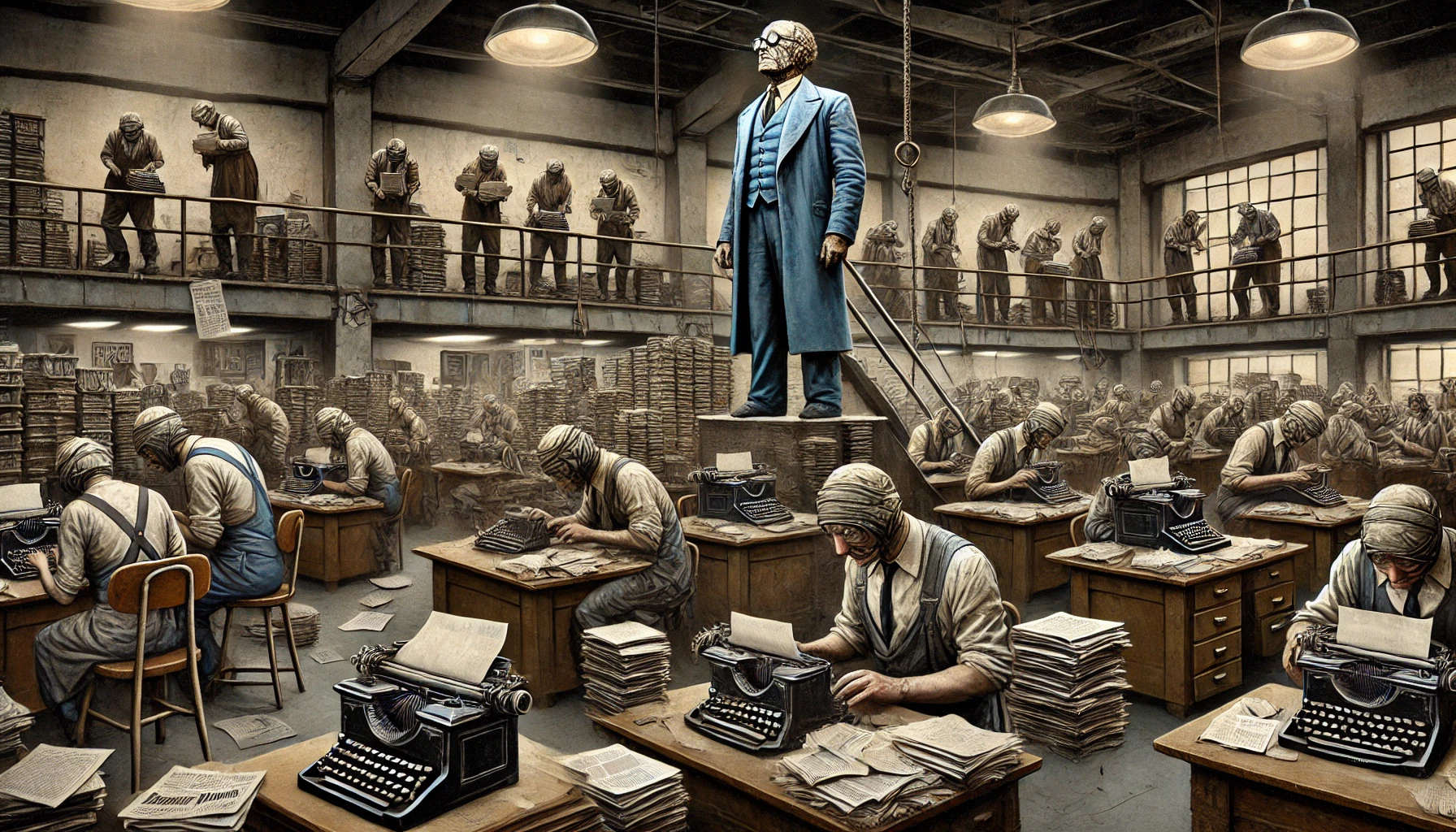
When Pulitzer Prize-winning Cartoonist Ann Telnaes walked out of The Washington Post it wasn't just a resignation—it was a goddamn funeral dirge for American journalism, a last wail before the whole rotten enterprise gets buried alive. As for Jeff Bezos, his shamelessness defies the English language, and the Post’s editors? Their cowardice is so profound, it should be classified as a new species. The words for it exist, but they’re unfit for print—or polite company.
Her departure is a funeral bell tolling for American journalism. Telnaes, armed with a pencil sharp enough to cut diamonds, walked away after the Post refused to publish one of her most searing cartoons depicting tech barons like The Washington Post's owner Jeff Bezos grovelling before a statue of Donald Trump. It was less a cartoon than a flaming truth bomb, and it was unceremoniously defused by the Post's editors.
This betrayal didn’t occur in a vacuum. It’s a vivid symbol of how far truth-telling has fallen. Under Katherine Graham, the Post stood as a beacon of resistance, even when Nixon and his thugs tried to burn it to the ground after the Post published The Pentagon Papers and later during Watergate. Graham didn’t flinch. Her newsroom didn’t fold.
She had a spine of steel, and her defiance wasn’t just legendary—it was lethal to power. The Post's Watergate reporting shattered a presidency and forever etched its name in the annals of journalistic courage.
Famously, she defended her reporters saying, "The only way to assert the right to publish is to publish."
Bezos and Trump. Never send a man to do a man's job
Now? That legacy is little more than a marketing slogan. "Democracy Dies in Darkness" has become a punchline—a tragic irony as The Washington Post, under Bezos, snuffs out the very light it once shined so brilliantly. Bezos is the squillionaire owner of Amazon, whose fortune could buy entire continents, yet he seems unwilling to risk even the slightest friction with power. His intervention just before the 2024 election to prevent the Post from endorsing Kamala Harris—a candidate who might have complicated his space ambitions with Blue Origin—was the moment the masthead might as well have read "Billionaire Interests First."
Let’s be clear: this isn’t some conspiracy theory hatched over too many martinis. The timing was too perfect to ignore. Blue Origin’s bid for lucrative government contracts, its rivalry with Elon Musk’s SpaceX, and Bezos’s relationship with Trump-era regulators are threads in a tapestry of influence too tightly woven to dismiss. By avoiding any endorsement that could ruffle Republican feathers, Bezos didn’t just bend the knee—he prostrated himself entirely.
And Bezos wasn’t alone in this act of journalistic self-neutering. Patrick Soon-Shiong, owner of the Los Angeles Times, followed suit by quashing his paper’s endorsement of Harris. One could almost hear the groan of old-school editors rolling in their graves as these once-proud institutions traded integrity for expedience.
Ann Telnaes had the audacity to draw the truth: that journalism’s greatest threat isn’t government censorship but the timid hands of billionaire owners too cozy with the corridors of power. Her resignation is the final punctuation mark on a sentence that began the moment Bezos bought the Post—a period of slow, suffocating compromise.
Where Graham stood firm, Bezos caved. Where Graham wielded her newspaper as a weapon against corruption, Bezos wields his as a shield for his business empire. If Katherine Graham faced down Nixon with a press badge in one hand and a martini in the other, Bezos would’ve handed him a cocktail napkin and asked for his autograph.
This isn’t the death of the press—it’s the selling of the press. And we, the public, are left to sift through the ashes of what once was, wondering if any embers of real journalism still burn. Somewhere in the dark corners of the afterlife, Nixon is smiling, knowing he lost the battle but won the war.
We’re living in the shadow of a press that no longer defends democracy but excuses its erosion. Telnaes walked away because she refused to become part of that shadow. And that, at least, gives a glimmer of hope. For now, it’s up to those willing to risk everything to keep the lights on and democracy alive—even as the billionaires work tirelessly to pull the plug.
The question isn’t just what Telnaes drew. It’s why the Post chose not to print it. And if we don’t ask that question, then "Democracy Dies in Darkness" won’t just be a punchline—it’ll be an epitaph.
